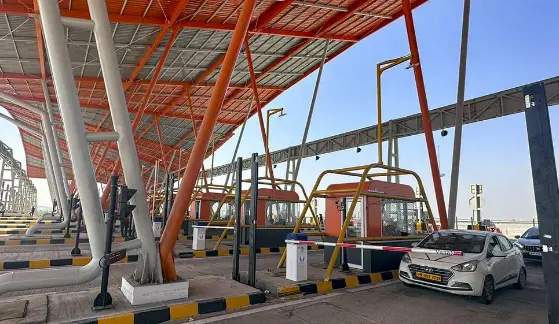Revolutionizing Road Charges: Unveiling GPS-Based Toll Collection
The age of stopping at toll booths and fumbling for cash might soon be a relic of the past. GPS-based toll collection, a rapidly evolving technology, promises a smoother, more efficient, and potentially fairer system for road users. This blog delves into the inner workings of GPS-based toll collection, exploring its core functionalities and the potential benefits it offers.
The Frustrations of Traditional Toll Booths
Traditional toll booths have several drawbacks:
-
Traffic Congestion: Vehicles bunch up as drivers slow down to pay tolls, leading to frustration and wasted time.
-
Inefficiency: Cash transactions are time-consuming, especially during peak hours.
-
Limited Payment Options: Not all toll booths accept all forms of payment, causing inconvenience for drivers without the necessary method.
GPS Takes the Wheel: How It Works
GPS-based toll collection utilizes satellite technology to automate the process of charging drivers for using toll roads. Here’s a breakdown of the system:
-
On-Board Unit (OBU): Vehicles are equipped with a small On-Board Unit (OBU). This unit typically uses a combination of GPS and satellite communication technology.
-
Satellite Communication: The OBU transmits a signal containing the vehicle’s unique identifier and location data to satellites.
-
Toll Zone Detection: As the vehicle enters and exits designated toll zones, the satellites track its movement.
-
Toll Calculation: Based on the distance traveled within the toll zone, the system automatically calculates the appropriate toll fee.
-
Automatic Payment: The toll fee is deducted from a pre-linked account or prepaid account associated with the vehicle’s OBU.
Benefits of GPS-Based Toll Collection
The transition to GPS-based toll collection offers numerous advantages for both drivers and road authorities:
-
Reduced Traffic Congestion: With no need to stop at toll booths, traffic flow becomes smoother, minimizing congestion and saving drivers time.
-
Increased Efficiency: Automatic toll collection eliminates the need for manual transactions, streamlining the entire process.
-
Multiple Payment Options: GPS-based systems can accommodate various payment methods, such as prepaid accounts, debit cards, or credit cards, offering drivers flexibility.
-
Improved Revenue Collection: Automatic toll collection minimizes the risk of toll evasion, ensuring a more reliable revenue stream for road maintenance and infrastructure projects.
-
Reduced Environmental Impact: Reduced idling at toll booths translates to lower emissions and a smaller environmental footprint.
Privacy Concerns and Potential Challenges
While GPS-based toll collection offers significant benefits, some concerns need to be addressed:
-
Privacy Concerns: The use of location-tracking technology raises privacy concerns. Robust data security measures and clear regulations regarding data usage are crucial.
-
OBU Costs and Installation: The initial cost of equipping vehicles with OBUs needs to be considered. Additionally, ensuring widespread OBU installation across different vehicle types requires careful planning and potential government incentives.
-
Interoperability Between Systems: Standardization across different GPS-based toll systems is necessary to avoid confusion and inconvenience for drivers traveling across regions with varying systems.
The Road Ahead: A Future with GPS-Based Tolls
The implementation of GPS-based toll collection is still in its early stages in many regions. However, several countries, including India and Singapore, are already piloting or implementing these systems. As technology advances and concerns are addressed, GPS-based toll collection has the potential to revolutionize the way we pay for road usage.
Looking towards the future, we can expect further advancements in GPS-based toll collection, such as:
-
Integration with Advanced Driver-Assistance Systems (ADAS): OBUs might be integrated with ADAS features in modern vehicles, enabling seamless toll collection without requiring additional hardware.
-
Real-Time Traffic Management: Toll prices could be adjusted dynamically based on real-time traffic conditions, incentivizing drivers to use less congested routes.
-
Expansion to Other Road User Charging Schemes: The technology behind GPS-based toll collection could be adapted for other road user charging schemes, such as congestion pricing in urban areas.
The transition to GPS-based toll collection promises a more efficient, convenient, and potentially fairer system for drivers and road authorities alike. However, addressing privacy concerns and ensuring smooth implementation across regions will be crucial for its widespread adoption.


Comments are closed, but trackbacks and pingbacks are open.